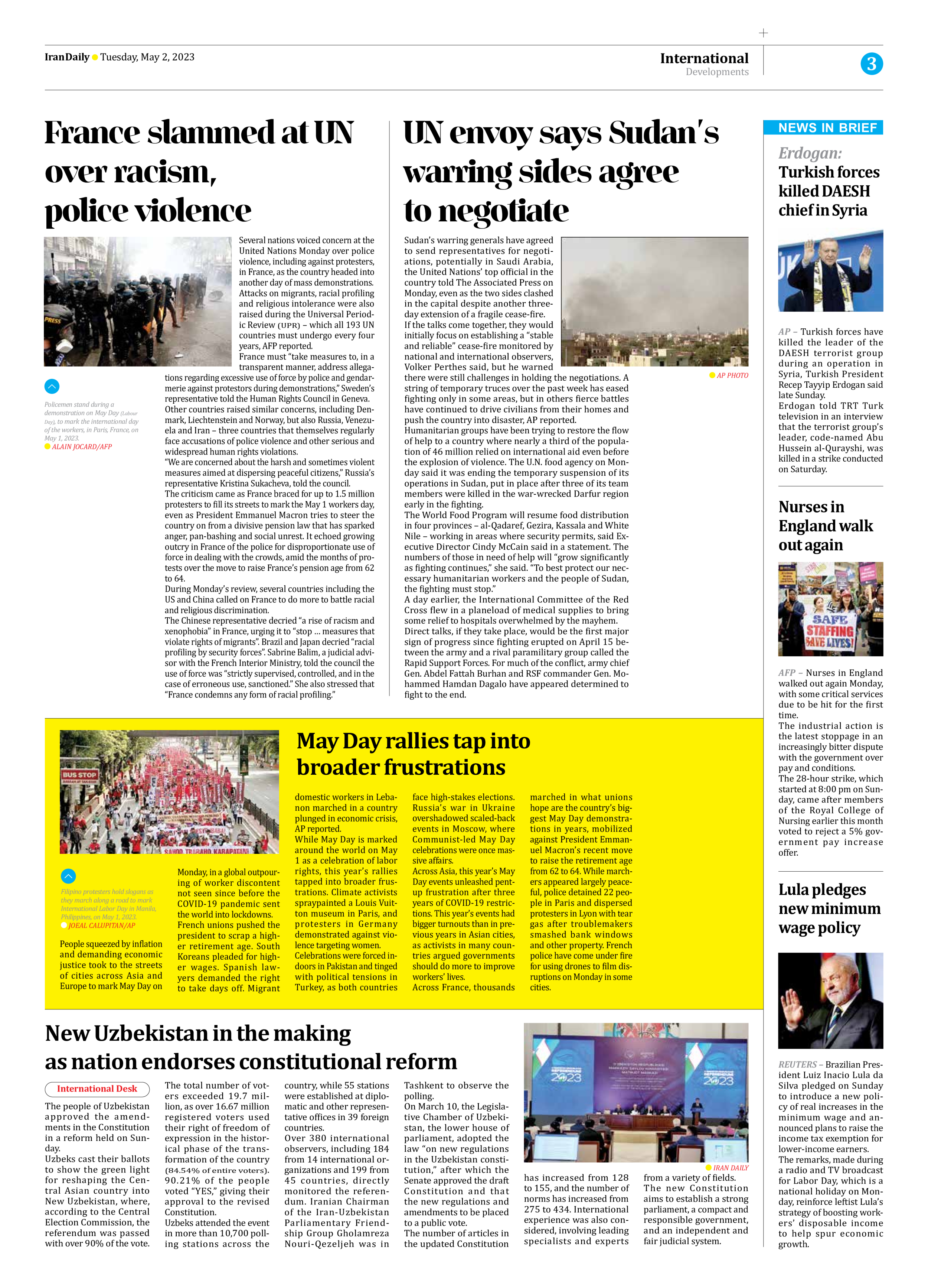
UN envoy says Sudan’s warring sides agree to negotiate
Sudan’s warring generals have agreed to send representatives for negotiations, potentially in Saudi Arabia, the United Nations’ top official in the country told The Associated Press on Monday, even as the two sides clashed in the capital despite another three-day extension of a fragile cease-fire.
If the talks come together, they would initially focus on establishing a “stable and reliable” cease-fire monitored by national and international observers, Volker Perthes said, but he warned there were still challenges in holding the negotiations. A string of temporary truces over the past week has eased fighting only in some areas, but in others fierce battles have continued to drive civilians from their homes and push the country into disaster, AP reported.
Humanitarian groups have been trying to restore the flow of help to a country where nearly a third of the population of 46 million relied on international aid even before the explosion of violence. The U.N. food agency on Monday said it was ending the temporary suspension of its operations in Sudan, put in place after three of its team members were killed in the war-wrecked Darfur region early in the fighting.
The World Food Program will resume food distribution in four provinces – al-Qadaref, Gezira, Kassala and White Nile – working in areas where security permits, said Executive Director Cindy McCain said in a statement. The numbers of those in need of help will “grow significantly as fighting continues,” she said. “To best protect our necessary humanitarian workers and the people of Sudan, the fighting must stop.”
A day earlier, the International Committee of the Red Cross flew in a planeload of medical supplies to bring some relief to hospitals overwhelmed by the mayhem.
Direct talks, if they take place, would be the first major sign of progress since fighting erupted on April 15 between the army and a rival paramilitary group called the Rapid Support Forces. For much of the conflict, army chief Gen. Abdel Fattah Burhan and RSF commander Gen. Mohammed Hamdan Dagalo have appeared determined to fight to the end.







